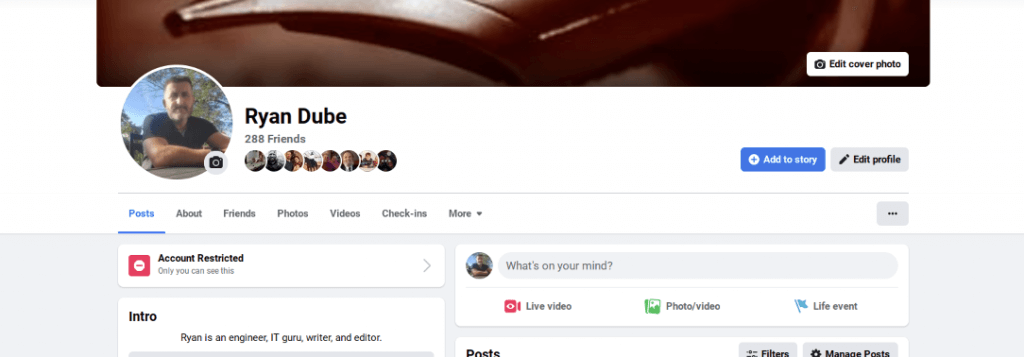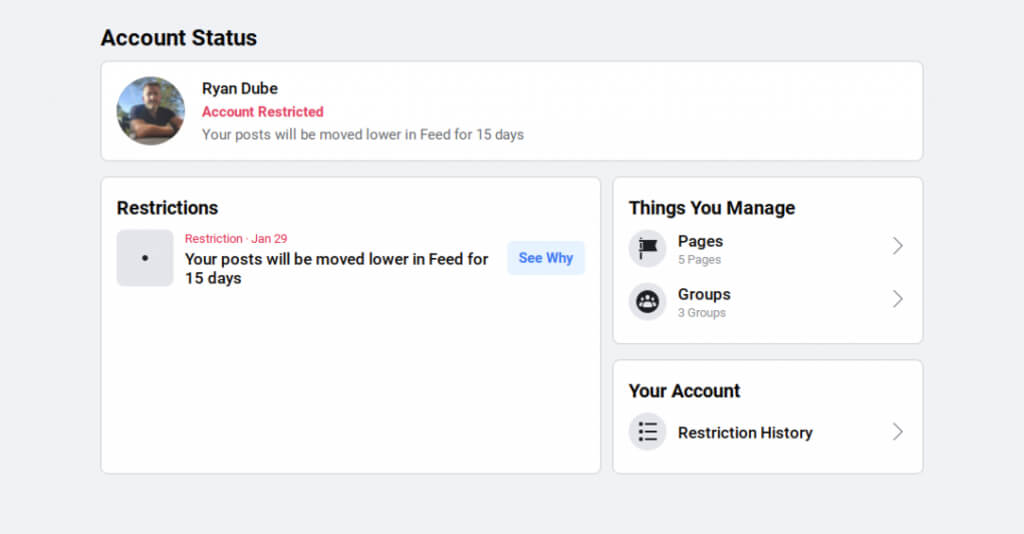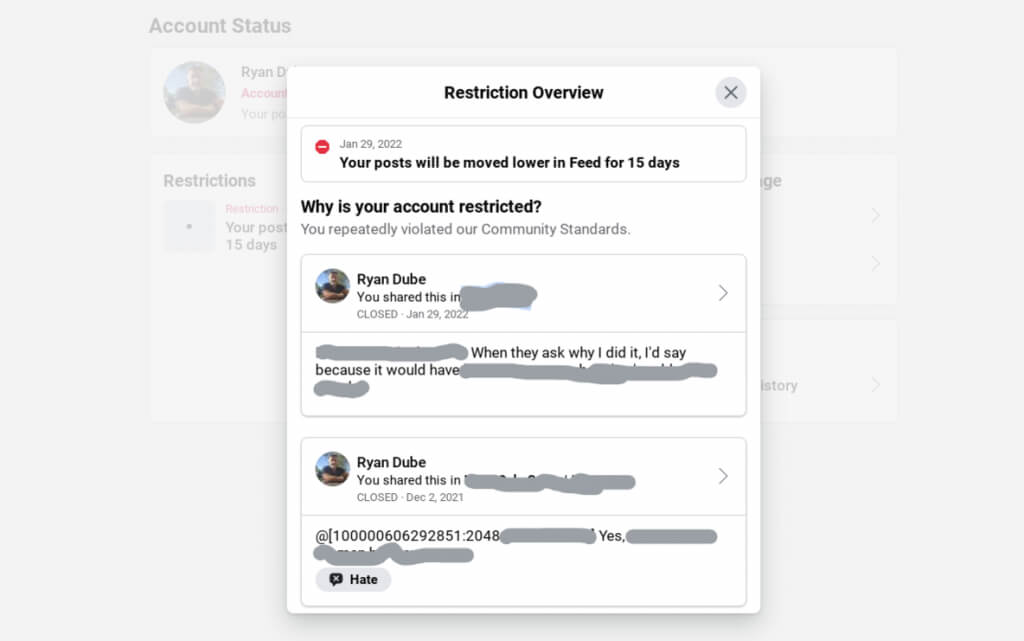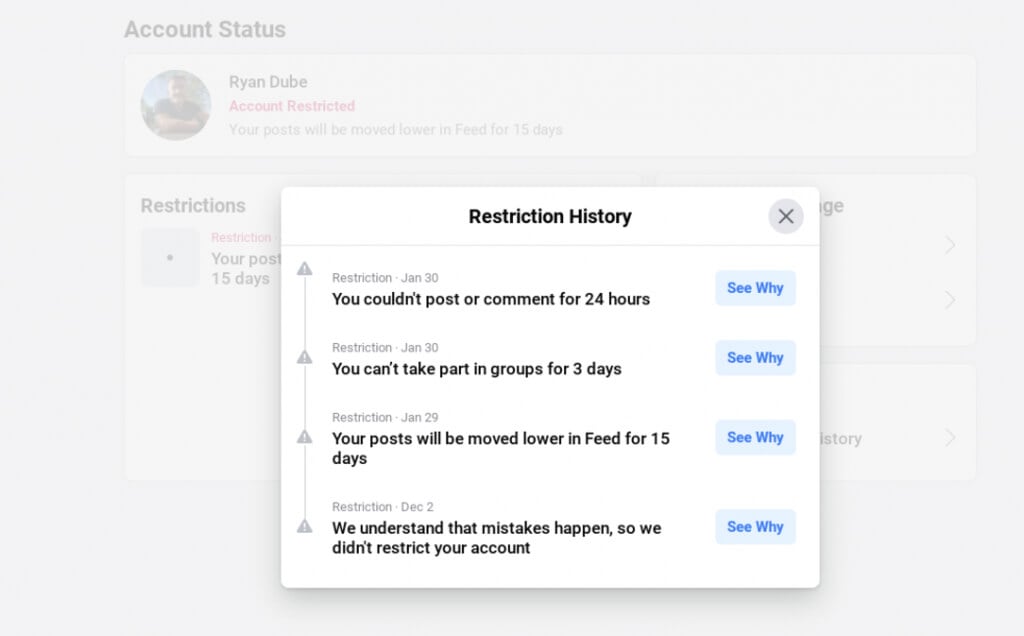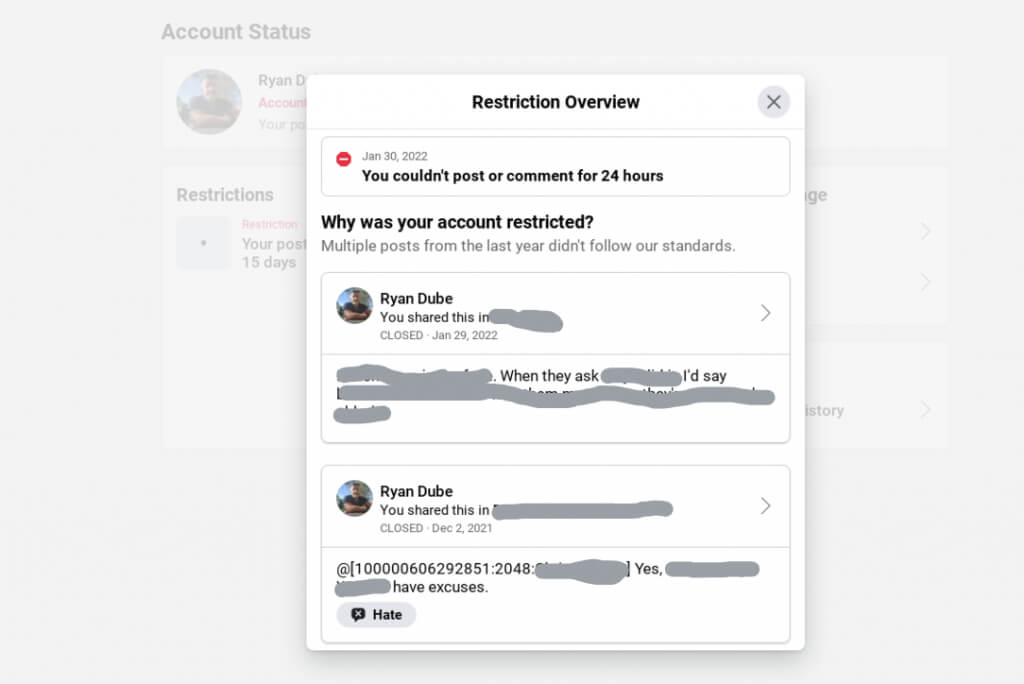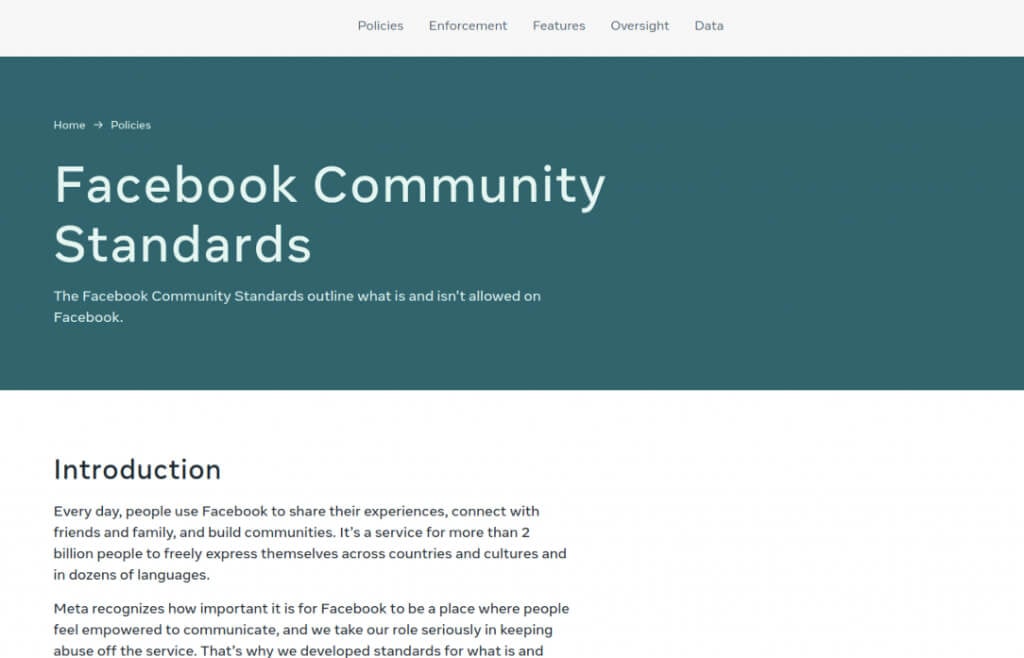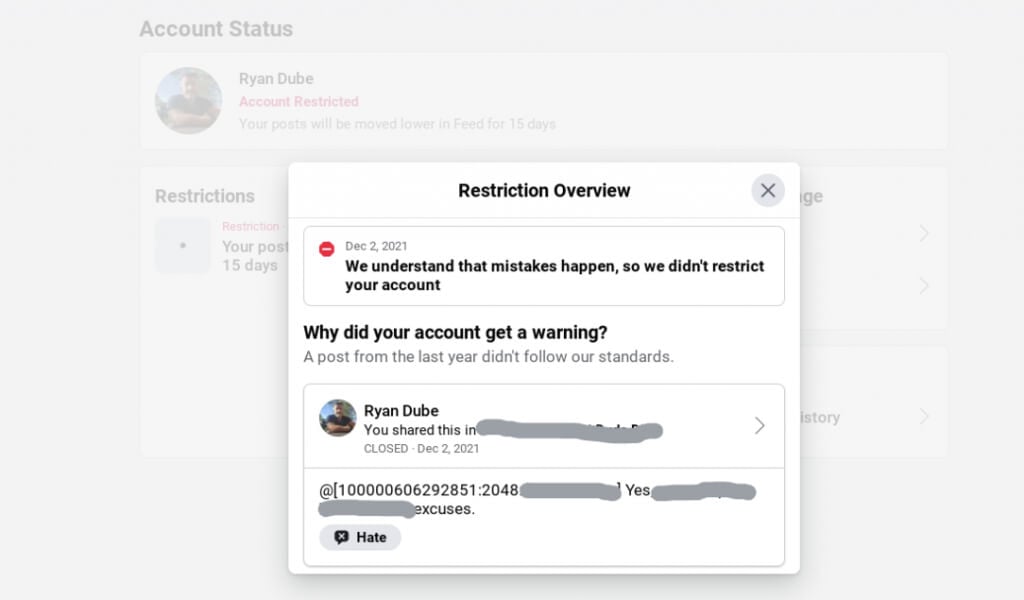What is Facebook jail? This is a term that people use to refer to Facebook’s stringent application of what they refer to as “community standards”.
Community standards as defined in Facebook’s policies seem straightforward and reasonable. However, when applied, Facebook’s team of censors (and the automated censoring system) sometimes seem to go to extremes. Even if your comment was just a joke or tongue-in-cheek, you could find yourself on the enforcement end of Facebook’s Community Standards team.
In this article, we’ll outline what activities you should avoid to remain out of “Facebook jail”, and what enforcement actions you can expect if you do happen to make a mistake.
What Are Facebook’s Community Standards?
Facebook provides a Community Standards page that outlines all of the behaviors that it monitors to try and keep Facebook a safe social media community for everyone.
There are four key areas of standards Facebook monitors and enforces which includes:
- Authenticity: Misrepresenting who you are or your purpose in posting on Facebook.
- Safety: Content that threatens physical harm against other people, including any form of intimidation, exclusion, or otherwise trying to silence other people via threats.
- Privacy: Sharing private information about people such as social security numbers, private phone numbers, personal address, or other identifying information that people prefer to keep private.
- Dignity: Posting anything that is considered harassment or degrading toward others on Facebook. This can include posting hate speech about a specific person, or about an entire group based on their race, gender, ethnicity, or sexual orientation.
You may think that making simple comments in jest on a social media site like Facebook wouldn’t get you in trouble. However, if your “joke” is deemed by the Facebook Community Standards team as “degrading” an entire group based on their social identity, you could find yourself spending some time in Facebook jail.
What Is Facebook Jail?
Whether you are the administrator of Facebook groups, run your own Facebook page, or operate a business page on Facebook, you need to make yourself very familiar with Facebook community standards. This way you can quickly remove content that could get both your group, and the Facebook user, in trouble with Facebook.
Facebook jail is the term used by Facebook users for when you are restricted from posting content on Facebook for a limited period of time. It’s essentially a “virtual” jail, because you can browse Facebook and see posts but you can’t interact with anyone during your suspension period.
How do you know when you’re in Facebook jail? You will see an “Account Restricted” notification on your Facebook profile page.
You’re the only person who will be able to see this restriction status. However, the odds are good that if you do see this red status appear, your account is limited in some way.
To find out more about how your account is restricted, just select the small arrow icon on the right.
You’ll see details around the current restriction, the date that the restriction was applied, and how long it will be applied before you can “get out” of FB jail.
If you do see those details in the Restriction pane, then congratulations! You’re officially in Facebook jail.
If you want to see what specific Facebook terms you’ve broken that put you in Facebook jail, select the See Why button.
This will open the Restriction Overview window, which will show you the original content you posted that got you in trouble in the first place.
You’ll also see the reason the restriction has been applied to your account. There are several layers of restrictions that could be applied to your account at any given time.
- One infraction with inappropriate content. Typically this results in 24 hours of not being able to post anything on Facebook.
- Multiple posts with inappropriate content. This could result in anything from several days to several weeks of not being allowed to post on Facebook.
- Multiple violations in a short period of time. If you’ve broken Facebook’s community standards several times in a row, you could face additional restrictions. The most common is having your Facebook content demoted in priority on everyone else’s Facebook feed for a certain amount of time.
Exploring Your Restriction History
If you’re a repeat offender of breaking Facebook’s community guidelines, you can see your restriction history in this same area.
On the Restrictions page, select the Restriction History on the right menu. This will show you a timeline with the dates of your inappropriate Facebook posts and the specific restriction that was applied at that time as punishment.
To see the details (including your original post) for each infraction, just select the See Why button on the right of that restriction.
Again, you’ll see the original content and the restriction to your account that Facebook applied in response to that post.
Study Facebook’s Community Standards
You may think that it’s really easy to stay out of Facebook jail. Just be kind to everyone and avoid making any kind of hateful post, right?
Unfortunately, if you use Facebook often, it’s not quite so easy. This is especially true if you take part in lively debates with other people on Facebook around topics like race, religion, politics, gender, and other very heated topics.
Anything controversial has the opportunity for your posts to be misconstrued or reported as “inappropriate” by other Facebook users, even if you didn’t intend your post to be negative in any way. This is especially true if you tend to post jokes or sarcastic comments that, taken in context of the conversation, are not actually hateful.
To keep yourself out of hot water, you can visit the Facebook Community Standards page and study Facebook’s policies.
Generally, the following type of post is guaranteed to land you some time in Facebook jail.
- Using a fake account on Facebook
- Posting any image that includes nudity
- Posting comments about self-harm or encouraging self-harm
- If you are a Facebook spammer trying to get clients via Facebook groups
- Trolls who post hateful content just to get emotional reactions from other Facebook users
- Using a fake name or otherwise faking your profile information
- Posting about hacks that would let people steal other user’s private information
- Posting memes with hate speech based on race, gender, ethnicity, or sexual orientation
- Spammy behavior where you send multiple users private Facebook messages over a short period of time
While it may seem scary that your Facebook account can be so negatively impacted so easily, just from making what you may believe is an innocent post on Facebook, don’t worry.
The Facebook community standards team doesn’t immediately apply a permanent Facebook ban. In fact, it takes many, many infractions to get permanently banned.
The first time you make a mistake, you’ll likely only get a warning. This will include a note from the Facebook team saying that “We understand that mistakes happen”.
If you behave yourself at this point, you’ll spend zero time in Facebook jail. No account restrictions will get applied at all.
However, if you are a repeat offender and can’t seem to get yourself to follow Facebook’s community standards, you could see yourself facing multiple Facebook account restrictions. And eventually, yes, a permanent Facebook ban.
This is why it’s a good idea to take the time to understand Facebook rules around community standards. This way you can carefully tailor each post you make on Facebook to keep yourself out of hot water on the platform.

